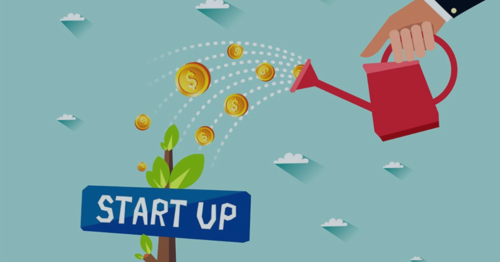KISS or Keep It Simple Security Convertible Note
Finance Funding Raising Funds Simple Agreement for Future Equity


Before KISS, Let’s Consider SAFE!
The KISS convertible note concept was introduced in 2014 and is based on SAFE (Simple Agreement for Future Equity). Before looking at what KISS is, let’s understand a little more about SAFE.
Startups can use SAFE as a financing contract to raise capital during the first rounds of seed funding.
As a financial instrument SAFE is often seen as being a more founder-friendly alternative to traditional convertible notes. The basic premise of SAFE is a contract between a company (in this case a startup) and an investor.
This Simple Agreement for Future Equity (SAFE) gives the investor rights to obtain a company’s equity and is based on specific trigger events. Examples are any future equity financing that would normally be led by VCs (Venture Capitalists). It is known as Next Equity Financing or Qualified Financing.
SAFE investor holders receive a conversion to shares which is given at a much lower price when compared to the securities’ actual price. The conversion is based on one of 2 things, either a discount rate or a valuation cap.
On top of this, any VC investing in the startup during the next equity financing round receives their equity share at the FMV (Fair Market Value) of said share allocation at that time.
While the SAFE method is still in place, using the KISS convertible note as an alternative is now well established.

What is Keep It Simple Security (KISS)?
The KISS convertible note contains many similarities to SAFE convertible notes. However, its main purpose is to shorten the settlement process by allowing startups to secure finance within a short time and at a low cost. By achieving this they are avoiding the long negotiation process necessary during investor grant agreement discussions.
Created by 500Startups, a global VC company with a network of startup programs for founders, mentors, and investors based in San Francisco, the KISS note template is a convertible note which is concise and to the point. It is an open-source document that was drafted after long discussions with many law firms and early-stage investors in Silicon Valley.
Flexibility without being over-customizable is the key to the KISS convertible note. In essence, it is simple but includes all necessary features to achieve balance both from the investor’s and the startup’s viewpoint.
What are the Basic Concepts of KISS?
A KISS is seen as being very similar to the classic model of a convertible note. It is designed to accrue interest at x% and comes with an approximately 18-month maturity date. After that period an investor can convert their underlying investment amount and the interest received into a newly created series of the company’s preferred stock.
Another significant difference from SAFE is that the KISS convertible note comes with an MFN (Most Favored Nation) clause. The MFN clause is an important part of the KISS agreement. This is because those KISS investors who generally invest in early-stage startups are taking big risks that the startup will actually get off the ground and grow to be successful.
The clause allows investors to get better future securities if they are issued by the startup. In short, it offers investors downside protection should the startup go through a “down round” or offer more favorable terms to any future investors.

KISS Conversion
When the startup raises equity financing of at least $1 million the KISS converts. It is an automatic conversion to preferred stock and takes place once the startup raises a qualifying priced round. It should be noted that the discount or the valuation cap needs to be negotiated on a deal-by-deal basis.
The mentioned 18-month maturity date can also offer investor protection because if at least $1 million of equity financing has not been achieved by the maturity date, the KISS holder has the option of easily electing to convert at the valuation cap which is set by the majority vote.
Company sale before equity conversion and other rights
If a sale of the startup goes through before equity conversion the investor has a choice. They can get 2X (double) their total investment back or convert at the valuation cap.
Other important rights are given to most investors with major investors receiving additional rights. Major investors are classed as those who agree to invest at least $50,000.
In terms of these rights, the majority of investors get access to such things as financial information rights and 1x participation rights for any future fundraising rounds. Investors also have the ease of KISS convertible note transfer to any other party at any time. As for major investors, they also have additional defined rights in the startup’s next funding round.
KISS convertible note clauses
We will shortly get into the 2 types of KISS available but before that, founders need to understand what the major KISS convertible note clauses are. This makes a recap worthy of understanding. The clauses included are:
- Minimum financing round: $1 million or more.
- Interest rate: 5%.
- Maturity / Expiration date: 18 months.
- Capital / Discount: Negotiated on a deal-by-deal basis.
- Conversion at: At least a $1 million rise in an equity financing round.
- Exit premium: Convert 2X.
- Transfer rights: Transfer to anyone at any time.
- MFN: Most Favored Nation clause.

Two Types of KISS
Here are the two types of KISS convertible notes available.
- Debt version: The debt KISS convertible note version comes with the interest rate as well as the maturity date. This is classed the same as a convertible note because it closely tracks the structure of the convertible debt. It also contains the interest rate along with the maturity date clause.
- Equity version: This comes without interest or maturity date. The 500Startups equity version can be looked at as being somewhere between a convertible note and a SAFE convertible note. It does not accrue interest and at the maturity date, it does not contain a repayment clause.
These combined factors generally make it the most attractive convertible security option for most startups.
Conclusion
It is clear that the use of KISS convertible notes is advantageous to both founders and investors alike. Founders will also find that it is becoming normal for investors to insist on getting KISS convertible notes as opposed to SAFE notes.
This means that founders need to be fully versed in exactly what the KISS solution is and how this highly effective financial instrument can be used to the best effect. Such knowledge will be required during KISS discussions, negotiations, and transactions with investors.
Founders also need to understand exactly how these convertible notes will impact their cap table. Not only do they need to keep track of all cap table KISS additions but also have the knowledge and ability to produce cap table projections in order to understand the impact of different scenarios before committing to any KISS convertible note deal.
With that in mind, founders should seek expert advice, assistance, and guidance and that is exactly what the highly experienced team at WOWS Global can offer.
We are committed to advising founders on how to get your startup off on the right footing and then helping you grow in a positive, structured manner. This includes connecting potential investors with startup ventures.
Another real benefit for founders relates to effective KISS convertible note management. This can be achieved by the use of the superior, secure WOWS Global online cap table system. The suite of tools available will benefit your startup in a myriad of ways.
📞 Learn more about our Equity Management tools and discover how WOWS Global can support your business growth. Ready to take the next step? Schedule a call with our experts now!Related Posts
-

Early-Stage Investors Funding Funding Round Fundraising for Founders Investor
Shh! Don’t Share These Fundraising Insider Secrets
Startup founders need to fasten their seatbelts and prepare for a roller-coaster ride if they are to achieve success. It is a straight fact that founders will find themselves wearing many hats to get their venture up, running, and thriving. -

Funding Funding Round Company Funding
What is Funding? Understand The Different Types of Funding
Founders of startup ventures do not need to be told that funding is required to get their business off the ground and to keep it growing in a positive fashion. While that is a given, the challenge for many founders is understanding exactly what funding is, what the different types of funding are, and how each will impact their company ownership structure. With these factors and more in mind let’s take a look at company funding and how founders can take advantage of the method(s) that best meet their needs. Doing so will be a big step towards helping your company grow healthily and successfully. -

Fundraising for Founders Funding Funding for Founders Fundraising Rounds
The Things We got Wrong About Fundraising
Founding a successful company is no easy feat. It is no secret that startup founders will find countless challenges that need to be overcome along the way. However, the belief, determination, and effort you put in to be at the helm of a growing, well-structured and healthy company are worth all of that effort and some. As a founder, you would not be human if you did not make mistakes along the way. That is part of the journey and learning from such mistakes will make you even stronger. With mistakes in mind, the fundraising process that founders go through is a major area where mistakes are made. Here are some key pointers that founders get wrong during the fundraising process. Understanding these and avoiding them will make your fundraising efforts much more effective. -

Finance Investment Investor Startup
Private Equity Outperforms Public Markets
According to McKinsey, by nearly any measure, private equity has outperformed public market equivalents with an average net global return of 14% per annum. Simultaneously, the number of private companies that entered the public market grew dramatically with a record 64 per cent year-on-year increase to 2,388 IPOs in 2021. Taking into consideration both these phenomenon’s, it is understandable that investors are now eyeing private market opportunities where they have the opportunity to invest pre-IPO to maximize returns. -

Cap Table Finance Funding Startup
Startup Cap Table Management in 2022 – What to Know as You Grow
Startups need investment in order to raise capital and grow their business. This funding comes from investors who are known as shareholders and it is no secret that any potential investor will want returns. -

ESOP Finance
How Employee Stock Option Plans Work for Startups
Getting your business off the ground in the most efficient way is a challenge all startups face. Fledgling companies that achieve this are the ones most likely to thrive.
